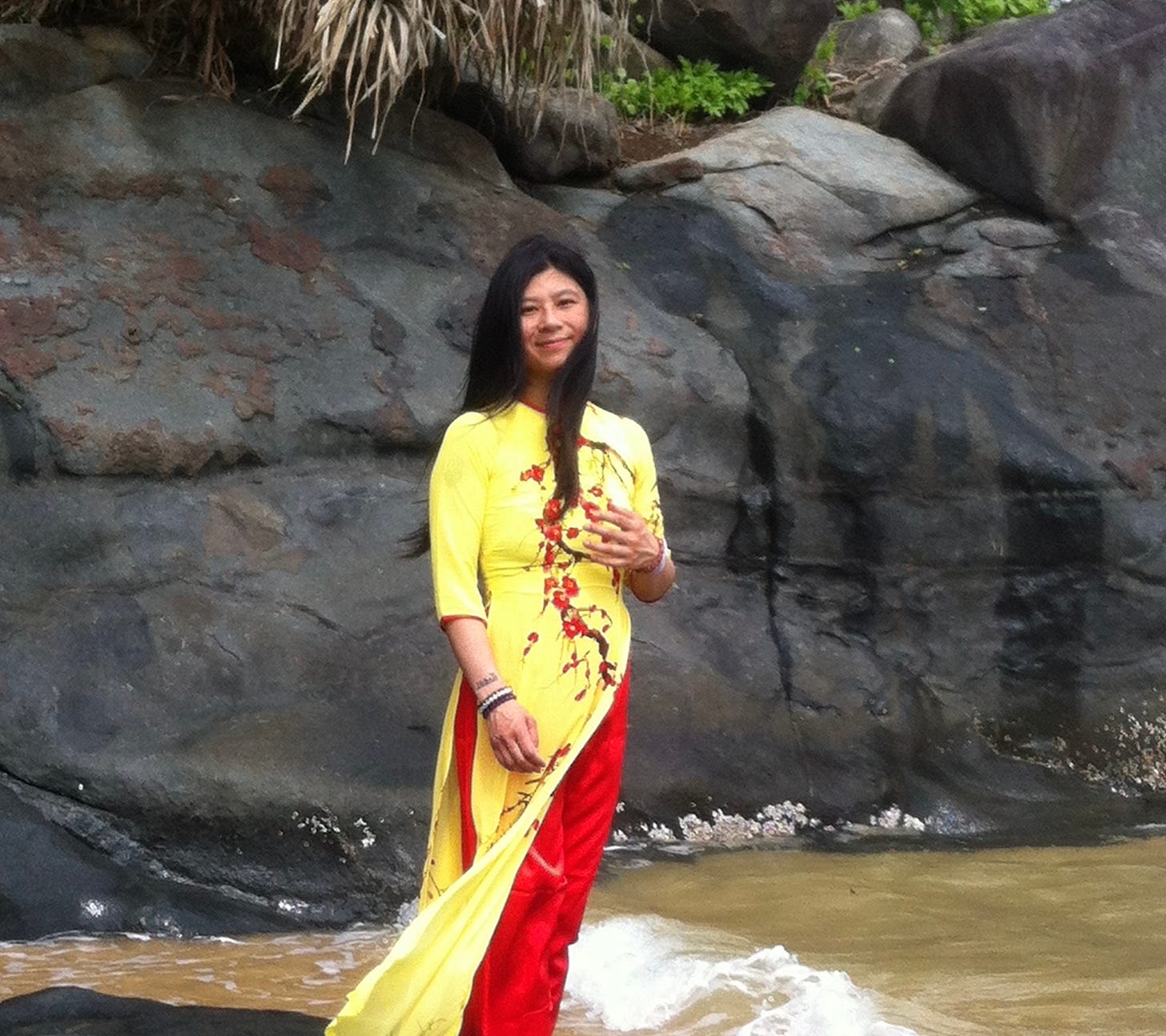Update from February 21, 2025: This interview was originally published in 2021.
Hello friends,
Welcome to this week’s edition of Sifting, shifting, and lifting . . . a weekly column in which I ask clever, curious, compassionate people my three favourite questions.
Today, I am delighted to introduce you to poet Chúc Mỹ Tuệ (aka Teresa Mei Chuc). I first came across her and her deep, resonant work when she selected my poem “This Poem is Folded” for inclusion in Nuclear Impact: Broken Atoms in our Hands, a powerful anthology she edited for Shabda Press in 2017. I have followed her ever since.
Check out her website and the Poetry Foundation to read some of her poems and articles—but first, read what she has to say below.
Chúc Mỹ Tuệ (aka Teresa Mei Chuc) was born in Sài Gòn, Việt Nam. A boat refugee at the age of two, she immigrated to the U.S. under political asylum with her mother and brother shortly after the American war in Việt Nam while her father, who had served in the Army of the Republic of Việt Nam, remained in a Vietcong "reeducation" prison camp for nine years.
Chuc’s poems have appeared in many literary magazines and anthologies. She is a graduate of the Masters in Fine Arts in creative writing program at Goddard College in Vermont. Her poetry collection, Red Thread, first published in 2012 has been re-released in 2021 and is available now.
What issue is engaging your head, heart, and hands right now?
There are many issues engaging my head, heart and hands right now. One of them relates to the stereotypes of Asians in the U.S. and the categorizing of Asians into one group when we consist of many diverse people with different languages, cultures, foods, histories, struggles, etc. This issue especially affects me and my community due to the racism and violence towards Asians in the U.S. including violence against our elders as a result of scapegoating us as a cause of the Covid-19 pandemic.
Sadly, many people are not familiar with the diverse history of Asians or Asian Americans. Violence against Asians is nothing new and has been occurring as a result of imperialism and wars in our homelands for hundreds of years. My own family was impacted by the American war in Việt Nam and due to this war, we were displaced and had to flee our homelands as boat refugees. My father was a prisoner of war and spent nine years in a Vietcong “reeducation” prison camp.
How could we create understanding and uplift the diverse voices and stories of the Asian community and diaspora to create bridges of compassion?
What artist or work of art has had a profound impact on the way you see the world and your place in it?
Poetry has helped me to shift awareness and deepen understanding of the human experience. Many Vietnamese poets and writers such as Nguyễn Phan Quế Mai and Ly Trần uplift the voices of the Vietnamese people. Also, reading poetry and prose by American veterans of the Việt Nam war, such as Doug Rawlings and Wayne Karlin, helps me to understand, on a deeper level, what veterans went through and how they were also victims of a vicious colonial/imperial system.
In addition, poetry has been an empowering way for me to tell my own story as a boat refugee and the stories of my family and our experiences in the American war in Việt Nam. Poetry has been a way to counter erasure of our Vietnamese voices and stories in the narrative about the war.
In order to break the cycle of violence, we need compassion and poetry and stories to help us to build those bridges of humanity.
There are so many good organizations working to transform our world through compassionate action. Who would you like to lift up?
One organization I would like to uplift is Peace Trees Vietnam.
After the American war in Việt Nam, many unexploded landmines remain in the ground that threaten the lives of villagers. Peace Trees is an organization that removes unexploded landmines to create a safer environment for the people in the Quảng Trị Province.
After war, we ask how we could move towards healing? The work of Peace Trees in removing unexploded UXO is one way we move towards reconciliation.
For its 26th Anniversary Celebration [October 25th from 5:30-7pm PST] Peace Trees will be in conversation with Nguyễn Phan Quế Mai, internationally award winning author of The Mountains Sing.
Not yet a subscriber? Pull up a chair. There is always room for one more.
Before you go
Would you do me a small favour? If you enjoy reading Sift. Shift. Lift. please take a moment to like, share, or comment below. It is a simple gesture, but it gives new-ish publications like Sift. Shift. Lift.—and creators like me—a much-appreciated boost.
Thank you my friends.





